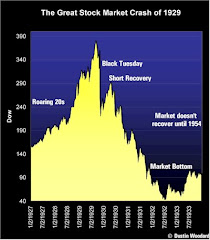
Over the past several years as part of my business I have watched the problem of public sector pensions. The problem has grown much more serious, painful and acute in just the last year.
In the early days of media and general public recognition of the public sector pension problem very few commentators discussed the issue. There were a few organizations such as CD Howe and the Canadian Federation of Independent Business CFIB who understood the serious implications of what the CFIB called the Pension Predicament.
Today the issue has become a topic of mainstream discussion throughout our society. At every business or charity function I attend the topic is brought up for heated discussion and every day there is a front page article or pension editorial about public sector pensions. It seems that almost everyone understands the issue and has an opinion on it.
This is a good situation to be in because now society can begin the work of changing the pension system to make it fair for all.
Part of the problem with the pension issue is understanding the nature and dynamics of the serious problem we had created. As a professional working in the area as a consultant to small companies, it took me a while to understand how the system worked in relation to the different types of pensions plans. I always saw a huge difference between the different types of pensions some of my clients had. The public sector employees had pensions that far outshone anything a private sector employee would be given.
Today I understand the pension predicament as the fundamental differences in the way the private sector and public sector pensions work. The private sector plan is a traditional pension based on money accumulated over the working career of the employee. However, the public sector pensions is based on a guarantee of continuing income based on retirement income levels.
In Canada the public sector pension norm is that 70% of retirement income will be guaranteed for life. The income is usually structured to include CPP but comes with several additional guarantees as well. It is guaranteed for life, guaranteed to increase every year and guaranteed to a surviving spouse, usually at 60%. The public sector pension is also know as a defined benefit pension. It should be called a guaranteed retirement income stream.
The fundamental problem for the public sector pensions today is that they are not sustainable and unfairly places onto the backs of the taxpayer to finance.
There is no way that given the promises made, public sector pensions can be sustained. Several attempts over the years have been made by the magic of actuarial analysis to figure out how much these plans should accumulate in order to remain solvent. However, most of these actuarial attempts have turned out to be a slight of hand trick used by the public sector unions to deceive the taxpayer into promising higher and higher guaranteed levels of retirement income.
The trend over time has been for higher payouts at retirement and earlier payouts. The formula for calculating the defined pension (guaranteed retirement income) is based on a formula of working years and the income earned in those years. For example, a typical private sector defined benefit plan would be based on the total working career of the employee. The public sector plan is based generally on the average past 5 years of working. Today a Government of Ontario contract is being negotiated based on a past 3 years average retirement income.
The total commitments made to public sector pensions is estimated to be short over $100 Billion dollars in Canada and in the U.S. a recent report shows them to be short $237 billion. This is after about 30 years of pumping hundreds of billions of dollars into these plans by taxpayers.




